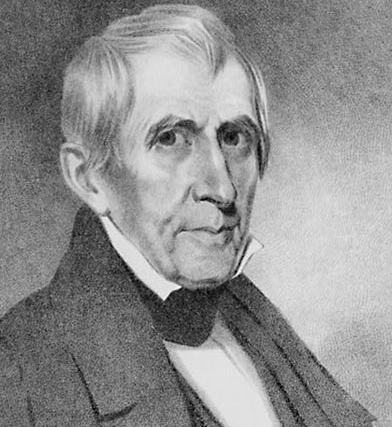With President’s Day upon us, everyone likes to think about the U.S. leaders who have really made a difference. You know, like George Washington, Abraham Lincoln, Franklin Roosevelt, John F. Kennedy and that sort of ilk. But what about the unsung heroes of President’s Day? Your William Henry Harrisons and John Tylers. That’s what this list is all about.

William Henry Harrison, Ninth U.S. President: Harrison’s only accomplishment during his brief thirty-two days in office was dying. As the oldest president apart from Ronald Reagan ever to be inaugurated, it’s no wonder he caught pneumonia while delivering a speech in cold weather. On the plus side, at least he forced government to think about what the fuck they should do if a president kicked the bucket while still running the country.

John Tyler, Tenth U.S. President: Like Lyndon Johnson after him, Tyler suffered being “the default president.” The only thing he was ever really known for was a passion for states’ rights and manifest destiny. A real Southerner type, indeed. As part of the Virginian aristocracy, Tyler wasn’t exactly what one would deem “in touch with the people.”

Zachary Taylor, Twelfth U.S. President: Yet another banal president with a last name ending in -ler (except spelled -lor), Zachary proved an additional bum leader when he died within a year of entering into the presidency from a stomach illness. Perhaps being president during the 1800s just naturally made one sick. After all, the position didn’t come with the sweet amenities that it does now.

Millard Fillmore, Thirteenth U.S. President: Filling in for Taylor, Fillmore was the only president ever to have appointed a Whig member of the Supreme Court. And that’s really all you can say about him other than he founded the University at Buffalo.

Franklin Pierce, Fourteenth U.S. President: Regarding Franklin Pierce: he had the look of someone who might kill. And kill he nearly did, after running someone over in his carriage.

James A. Garfield, Twentieth U.S. President: Garfield would become best known for serving the second shortest amount of time after William Henry Harrison. But at least he went out in a more badass way: via assassination by Charles Guiteau. This would mark the first trend in presidential assassination.

Chester A. Arthur, Twenty-First U.S President: With a name like Chester, it was to be expected that this succeeding vice president was a plump man with poor health. In fact, he was all too ready to retire at the end of finishing up Garfield’s term.

Benjamin Harrison, Twenty-Third U.S. President: As the grandson of William Henry Harrison, it’s no wonder this descendant was so forgettable. About the only thing he’s notable for is raising government spending to an all-time high and, very unpopularly, increasing tariffs. This resulted in the re-election of Grover Cleveland, who Harrison had usurped in the previous election.

Warren G. Harding, Twenty-Ninth U.S. President: Apart from lending Warren G his rapper name, the sole aptitude Harding possessed was for scandal, most notably the Teapot Dome incident, which was something of a precursor to Nixon-level corruption.

Calvin Coolidge, Thirtieth U.S. President: Coolidge was notable for rounding out the number of U.S. presidents at thirty. His laissez-faire policies would only be appreciated briefly in the 1980s by Ronald Reagan, who himself was actually notable for shaping the repression of the decade that led to so much iconic pop culture.

Dwight Eisenhower, Thirty-Fourth U.S. President: Although Eisenhower ran the country for the bulk of the 1950s, his contribution is far less memorable than that of Senator Joseph McCarthy, who seemed to have more say in dictating American politics via his communist witch hunts.

Gerald Ford, Thirty-Eighth U.S. President: As the only president ever to be inserted into the position (differing from a Vice President in that the country wanted someone completely unaffiliated with the Nixon administration), Ford did his best to restore faith in American government, but, of course, the damage had already been done.
So what does this list tell you? If you’re not a Roosevelt, Kennedy, Bush or Clinton, don’t even bother trying to carve out a presidential legacy.






















